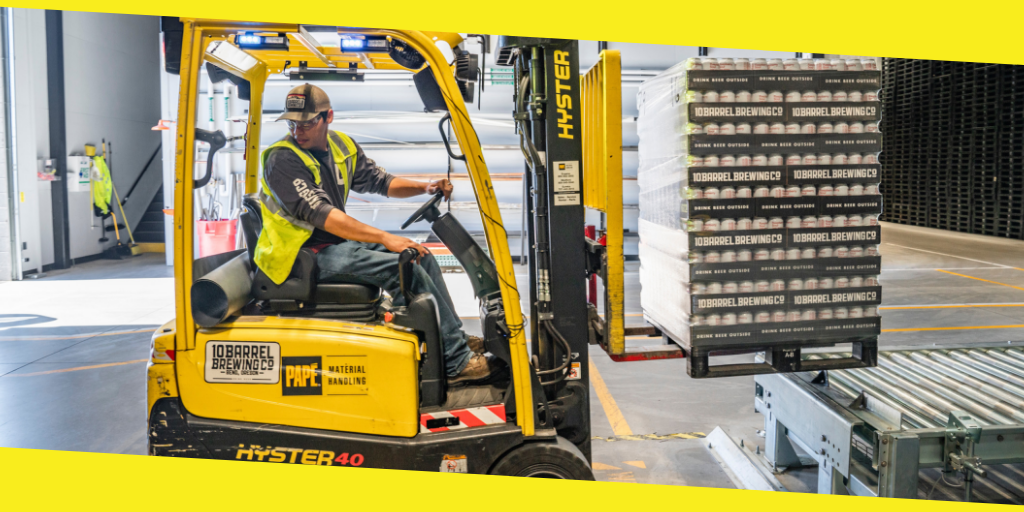Seven Benefits of a Warehouse

Image Source: Pexels
A warehouse is a storage space that allows the accumulation of goods by storing the products throughout the seasons and releasing them as and when needed. In many cases, businesses today utilize warehouses to hold and preserve miscellaneous products until its time to dispatch to their respective customers.
It may also be a space that assumes the dire responsibility of providing safe custody of the goods. A warehouse facilitates both production and distribution on a large scale. Nowadays, a warehouse is always needed because some products are made during a particular season but rest in demand throughout the year. Similarly, some of the goods are produced throughout the year but are demanded only for a specific season. This sea-saw of demand and supply can be nerve-wracking.
Hence, it is of paramount importance that business owners consider making a warehouse a part of their plan to avoid any mishap in the future. There is a lot more to a warehouse other than serving as a small storage unit.
In the following blog post, we are going to tell you the seven benefits that a warehouse can bring in for you except for providing a haven for surplus commodities.
Here you go!
1. It minimizes risk
As we established earlier, the warehouse acts as a safety net for the goods. It allows the businessmen to keep the risk of loss to a bare minimum. If the product, a businessperson deals in happens to be perishable, then a warehouse keeps them from being exposed to any external damages. It also saves costs in the long run and also keeps the goods from any possible theft.
The best part of having a warehouse is that the goods kept in it are insured. Therefore, in case of any loss or damage, the owner himself does not have to bear the cost. The owner gets a full-fledged compensation from the insurance company. To sum up, the warehouse minimizes the inventory loss, and any potential risk rests with the warehouse insurance company.
2. Packing and processing
Today’s warehouses are much more than merely being a storage space for goods. They now serve in other capacities too for a particular set of products, such as coffee and tobacco, which need to be conditioned and processed differently to become fit for consumption. To put it accurately, a warehouse nowadays serves as a processing and blending unit.
Not only that, but they may also act as a pick and packing unit along with shipping services in addition to inventory management. It is how warehouses are now helping in taking the sales game to a whole new level and aids in order fulfillment.
3. It opens an opportunity for expansion

You will be able to focus on the core purpose of your business if you are not bothered or have the pressure of storing all the materials, components, and finished products.
You will only do yourself a favor if you outsource the department of storage to a warehouse. It will not only save your time but will also make room for you to take other factors under your supervision. It will allow you to use the existing space for other important things like product development and process improvement.
4. It plays a significant role in price stabilization
The prices can only stable when a business can maintain a consistent level of stock. It allows them to forecast profits, losses, and production. It is why warehousing is even more crucial as it makes sure there is a steady supply of goods in the marketplace. It helps ease the utility of time, thereby enabling and smoothing the process of price stabilization. This way, the prices do not rise when there is comparatively a slack season.
5. It helps in spot stocking
This particular benefit is beneficial for business owners who deal with seasonal products, which are highly favored by the agriculture sector.
Spot stocking is as a branch of warehousing that does not involve using a warehouse facility year-round. Instead, spot stocking means using several warehouses simultaneously set in several locations closest to the key markets. It reduces the transportation time and of course, costs and to meet the demands of the customers as soon as possible.
6. It helps in finances
Warehousing also opens the doors to financial options. The owner can secure loans from the warehouse keeper against the goods he has given for protection which serves as collateral. On the other hand, even traditional loan institutions like banks and other financial institutions also sanction loans against warehouse receipts. It is how warehousing could be an additional source of finance when nothing seemed to work, and business operations have gone both literally and figuratively haywire. You can say that it serves as the light when the tunnel gets pitch dark.
7. It regularizes production
For the mass production of goods to be carried out, a substantial amount of raw materials need to be kept in warehouses. Sometimes, in anticipation of a rise in prices, the goods need to be stored as a backup. Also, there has to be a store where products can be kept in case of a rise in demand with the help of a warehouse to house the raw materials or the finished goods.
We bet you must not have given thought to the points we just put forth and discussed. In a nutshell, warehousing can prove to be the best way to seamlessly manage everything from procurement, storage, and logistics to distribution. As a result, you will also see a visibly increased level of productivity and better production workflow.
You may like this
Recommended For You
A Few Simple Tips for Hiring New Apprentices
Most Inside
Most Inside offers high-quality recommendations and valuable updates to enhance all aspects of your life, providing premium guidance and enriching experiences.




